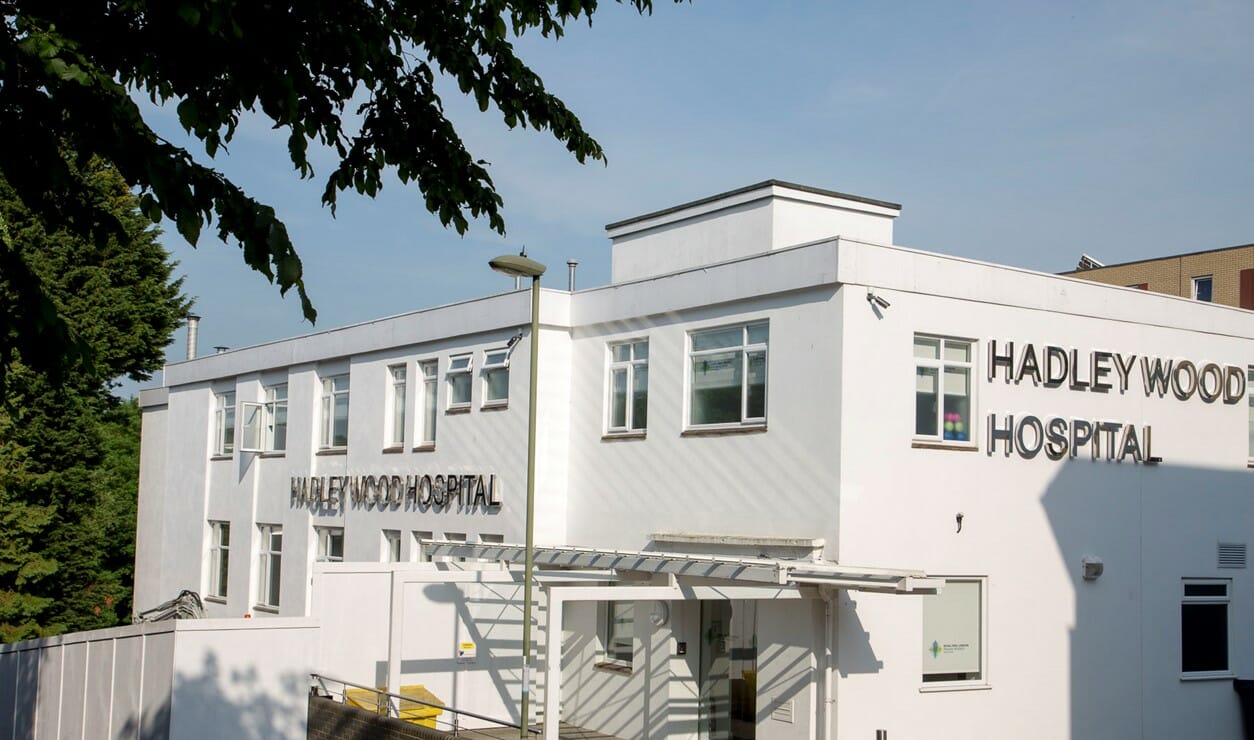Diagnostic nasolaryngoscopy

Our private Diagnostic nasolaryngoscopy services are provided at the Hadley Wood Hospital, High Barnet.
To find out more about our hospitals click here:
A diagnostic nasolaryngoscopy is a procedure used to help diagnose conditions concerning the nose and throat. A soft, flexible scope, which emits light, is used, enabling the ENT specialist to closely examine inside the nasal passages and throat.
Do I need a diagnostic nasolaryngoscopy?
A nasolaryngoscopy can be used to investigate a range of symptoms, such as blockages in the nose, catarrh (build-up of mucus in the nose), an ongoing sore throat, cough or hoarse voice, as well as lumps in the throat and issues with coughing and swallowing.
The procedure
It is usually carried out as an outpatient procedure, meaning you’ll be able to go home shortly afterwards. First, a local anaesthetic spray will be used to numb the area and make the procedure more comfortable. This may taste a little bitter and make your throat tighten slightly, which just means the numbing is taking effect. The ENT consultant will then gently pass the scope into one or both of your nostrils and into your throat. You’ll be asked to breathe through your mouth as this is happening. The scope emits light, enabling the consultant to get a much clearer, close-up look inside your nose, throat and around the vocal chords, if required, than would otherwise be possible.
Your consultant may ask you to sing a note, puff your cheeks out or stick your tongue out while they are carrying out the examination – which they’ll explain if necessary. Once the examination is complete, the scope will be gently removed. You’ll be advised to wait until the anaesthetic wears off before eating and drinking anything (around one hour) but aside from that, you should be able to carry on with your day as normal.
Your consultant will normally be able to obtain your diagnosis and explain any findings right away. Depending on the results of the procedure, you may be invited for a follow-up, or further tests or treatments may be required.
